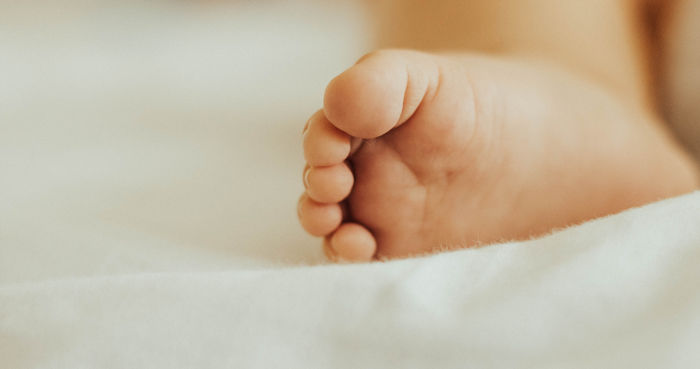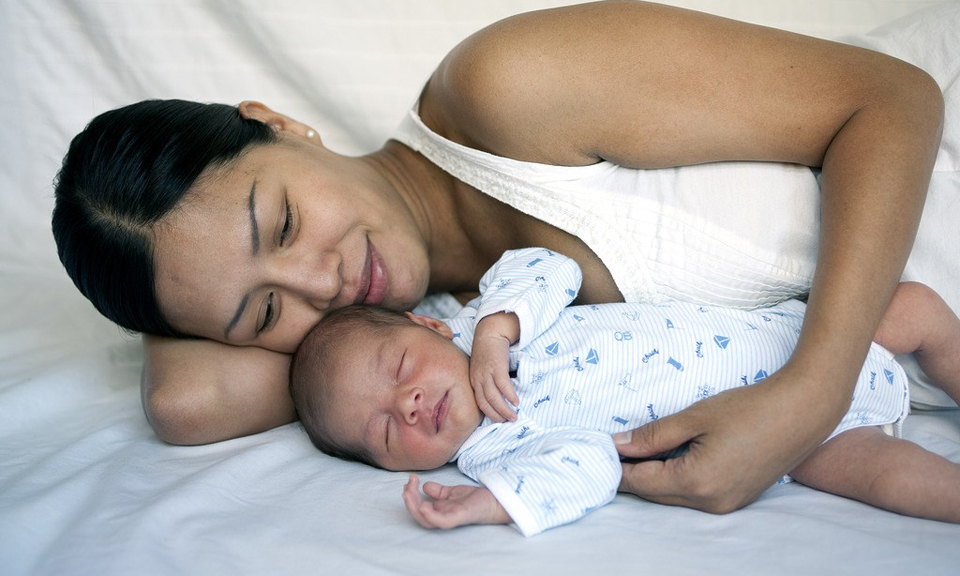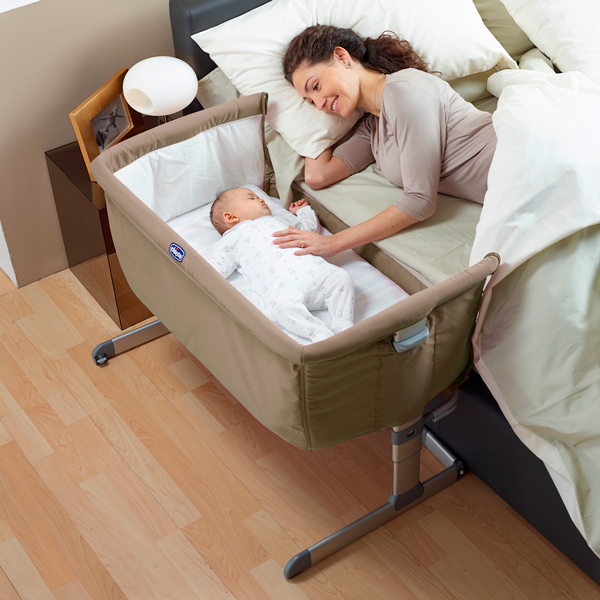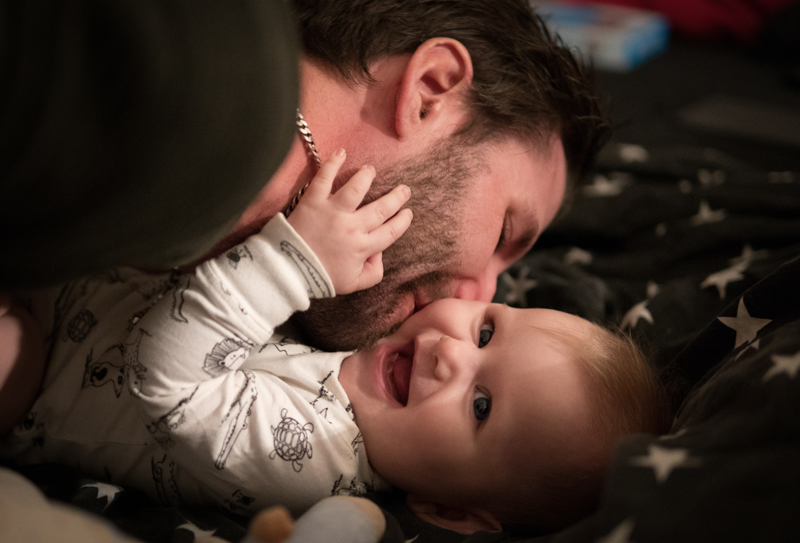
Safe co-sleeping and breastfeeding
How should I sleep with my baby? Frequently asked questions about co-sleeping and bed-sharing
Many LactApp users have asked about babies and sleep, and it’s no surprise that nighttime, co-sleeping, and breastfeeding are two of the issues that most concern families with children up to 3 years old.
So today, we will talk about co-sleeping and bed-sharing. This is a surprisingly controversial topic in Western culture, both for families and the scientific community, despite the fact that major health organizations such as WHO and UNICEF recommend and promote the benefits of co-sleeping.
Additionally, these practices help to maintain breastfeeding because they allow mothers to get more rest and maintain their milk supply thanks to nighttime feedings.

But one thing is talking about co-sleeping and bed-sharing in general, and another is talking about all the worries that arise when implementing these practises. So here, we will reassure you and try to answer your questions, or at least those that concern you the most.
Are there different ways of co-sleeping and bed-sharing?
The term “co-sleeping” means sleeping in close proximity to your baby but not necessarily in the same bed, and “bed-sharing” means sharing the same bed.
This is an important distinction because mothers often think they either have to sleep in the same bed or leave their baby in a separate baby cot or crib and often, none of these options are convincing to mothers. The first one doesn’t convince you because you might be afraid to crush or hit your baby, and the second one either because you don’t want a barrier between you and your baby or you are uncomfortable having to get up to breastfeed each time.
Attaching a bed or cot to your mattress (with the correct safety measures) is an intermediate option that many families choose, especially in the first few weeks.
I have heard that bed-sharing is not safe in the first 3 months. Is that true?
There is a lot of debate, discussion, and contradictions among the scientific community about this stage. The evidence is not clear. Some studies point to more risk, while others point to information bias and systematic errors in previous evidence.
There is no clear evidence, but they all agree that co-sleeping with a side sleeping crib from 0 to 3 months is safe and beneficial.

Daddy wants to sleep with the baby; is it safe?
Evidence tells us that breastfeeding protects against Sudden Infant Death Syndrome (SIDS), that co-sleeping and bed-sharing help to maintain breastfeeding, and that sleeping with a side sleeping cot is the safest thing for the first three months. So, our recommendation is that during these first three months, the mother will be the only person who sleeps with the baby in the side sleeping cot bed. From there, and respecting the rules for safe co-sleeping and bed-sharing, sharing a bed with your baby is not unsafe.

My family and friends insist that if I sleep with my baby, she will be attached to my breasts all night, and I won’t get any rest.
Babies don’t wake up because of breastfeeding; they wake up because their sleep structure is very different from ours. The phrase “sleep like a baby” is not very accurate. In reality, it’s normal for babies to wake up at night for many months because of their development. Breastfeeding is an excellent way to help them getting back to sleep for the child and the mother.
In fact, a research article concludes that mothers who breastfeed their babies sleep 45 minutes more at night than those who bottle-feed.
What are the guidelines for safe co-sleeping and safe bed-sharing?
- Babies should sleep on their backs, never on their sides or on their front.
- The mattress should be flat and firm. Do not use water or air mattresses.
- NEVER sleep on a sofa.
- Make sure your baby cannot fall out of bed or can not be trapped in a hole.
- Avoid the use of pillows, furry blankets, quilts, cushions, anti-tip pillows, stuffed animals, bumpers and so on.
- Check that nothing can cover your baby’s head.
- Avoid overdressing or underdressing your baby.
- Do not sleep in the same bed if you are a smoker or if your partner is a smoker.
- Never smoke in the bedroom.
- NEVER sleep with your baby if you have consumed alcohol, drugs, sleeping pills, or medication that affects your level of consciousness and your ability to react.
- Don’t share a bed if you have a condition that decreases your level of response, such as diabetes or unstable epilepsy.
- Do not sleep in the same bed if you are very tired or if someone has a fever.
- Do not allow pets to share a bed with your baby.
Also, remember:
-There is a higher incidence of SIDS in premature or underweight babies (sharing a bed).
-Breastfeeding is a protective factor for SIDS
You can find our IBCLC experts in the Consultation Channel of the LactApp app, which is free to download for iPhone and Android. There is an entire section on sleep and breastfeeding.
You will also find further information here: